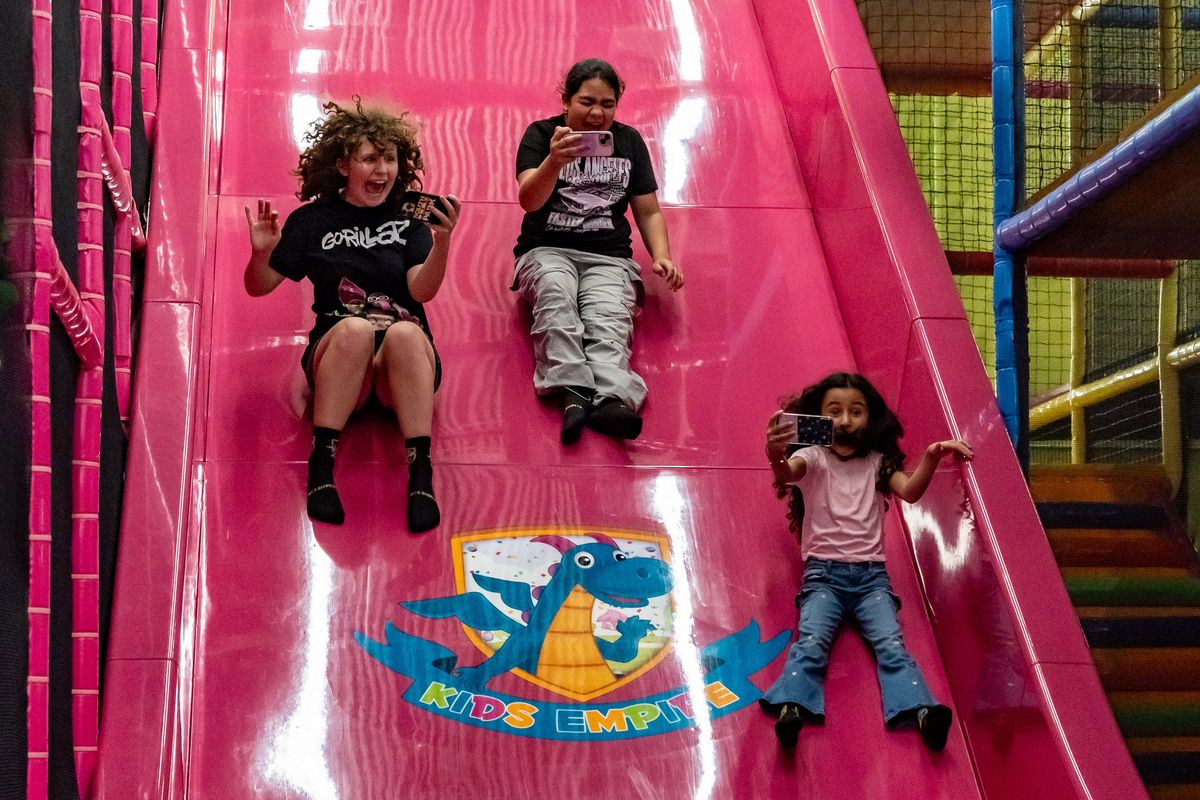Scientists have uncovered 7 reasons middle children are actually the best
It's time middle children got the recognition they deserve.

Stephanie Tanner, Jan Brady, Cory Matthews. Where would we be without these iconic middle children who made for such great TV in the 60s-90s? And let's not forget Malcolm in the Middle, which managed to get an entire seven-season run out of all the conflict experienced by the misunderstood and overlooked middle child.
August 12 is National Middle Child Day in America, dedicated to recognizing the sibling in the middle. It’s a special day to highlight the kids who often get lost in the familial mix while the youngest hogs all the attention and the eldest has all the responsibilities.
Elizabeth Walker founded the day in the 1980s because she thought middle children were “left out.” But we think the great traits of being the kid in the middle are worth highlighting any day of the week.
When people discuss the plight of these kids, they often bring up Middle Child Syndrome, which some say leads kids caught in the middle to feel rebellious or have a chip on their shoulder. However, at Upworthy, we like looking at the bright side of things, so we’ve made a list of the 7 traits that make middle children amazing.
1. They’re good kids
Research shows that historically, middle children have been the most behaved out of the bunch. One study in 1964 and another in 2009 found that middle children were the least likely to act out.
Middle children have been shown to be humble, honest, and agreeable. The fact that they get less attention and have a less defined role in the family can lead to high levels of independence and self-sufficiency from a young age.

2. They’re wonderful team players
Middle children are the way to go if you’re building a team, whether on the field or in the office. “They become more independent, think outside the box, feel less pressure to conform, and are more empathetic,” Katrin Schumann, author of "The Secret Power of Middle Children," told Psychology Today. “This gives them great skills as employees and also makes them excellent team players and partners.”
Did you know that Michael Jordan was a middle child? To be fair, he was known to be a near-psychotic competitor and not the kindest teammate around, but he knew how to get the job done. Simone Biles was a middle child, too! Can't argue with that.
3. They are successful
Schumann also says middle children are more successful than their older and younger siblings. She notes that at least 52% of US presidents were middle children, as were Warren Buffet, Mark Zuckerberg, Jennifer Lopez, Princess Diana and the aforementioned Michael Jordan.
"When they realize how many the useful skills they've developed as a result of being in the middle, they are empowered in ways that positively influence their lives," Schumann said, according to Business Insider. The expert claims that middle children are successful because they had to vie for attention and aren't used to giving up on what they want.”

4. They are great negotiators
Middle children must develop excellent negotiating skills because they are at a power disadvantage in the home. "When middleborns are growing up, they don't get their way because they're the biggest and they don't get their way because they're the baby who was indulged,” Catherine Salmon, PhD. told CBS News.
They learn to be clever and crafty to get what they want. They also develop a more easy-going nature when things don't go their way. They're used to being overlooked in one way or another, and don't get as bent out of shape about it as the youngest and oldest sometimes do.
5. They’re humble
Middle children have to learn humility the hard way because their birth order makes them the least important in the bunch. But even though it’s a harsh lesson, the benefits are great. “Humility can produce more happiness, positive emotions, and well-being because a person has a clearer understanding of the self,” Tiara BLain writes in a PsyD-reviewed article for Verywell Mind. “They are able to be comfortable with who they are and who they are not.”

6. They are creative
Middle children may also be more creative because they are “trying to be different from their elder and younger sibling,” Michele Borba, Ed.D., writes. Given that the eldest and youngest naturally stand out, the middle child may have to work a bit harder to receive attention for their creativity, so they push themselves further.
It could also be that middle children get a little more alone time spent in solitude to pursue creative endeavors.

7. They’re likeable
Suzanne Degges-White, PhD, says middle children may be more “agreeable” and easygoing” than their siblings. “They are more extroverted, as well,” she writes. “They don’t have to lead the pack, and they don’t get the 'babying' their younger siblings do. This allows them a bit more freedom to be themselves.”
What's more is that the likability and agreeableness of middle children was found to be higher the more children a family had. So when kids get even more "lost in the shuffle" in a four or five-children household, some of these traits and phenomenon become amplified. That also means the household has multiple middle children; anyone who's not the oldest or youngest qualifies for the label.
Ultimately, we’re all individuals, so not all middle children will develop these qualities. It depends how much stock you want to put into birth order theory. Some believe that birth order plays a monumental role in your personality and the trajectory of your life. Others are more skeptical. There's no denying, however, that oldests, youngests, and middles receive different amounts and kinds of parenting due to the nature of the family hierarchy. One study showed that youngest children, for example, get 3,000 more hours of quality time with their parents during their key childhood years than other siblings. That's a massive difference!
In any case, it’s nice to take a second and heap some praise on the kids who may have felt a little neglected during childhood by letting them know that they are special, too.
Just not as special as Marsha. “Marcia, Marcia, Marcia!”
This article originally appeared last year. It has been updated.


 Sandra’s granddaughter, E’s daughter, and another friend at an indoor park (July 2025)
Sandra’s granddaughter, E’s daughter, and another friend at an indoor park (July 2025) One of the ladies Sandra sponsored from Venezuela and her partner during Sandra’s first visit to meet her (December 2023)
One of the ladies Sandra sponsored from Venezuela and her partner during Sandra’s first visit to meet her (December 2023) A cat walks around and sits on a bench.
A cat walks around and sits on a bench.  A man handing a woman his business card at an event.via
A man handing a woman his business card at an event.via  A man and woman sharing a drink at a bar.via
A man and woman sharing a drink at a bar.via  Nuns standing before a grand cathedral facade.
Nuns standing before a grand cathedral facade. A nun prays silently beside a sunlit window.
A nun prays silently beside a sunlit window. We can't even agree on basic grammar?!
We can't even agree on basic grammar?!  When it comes to texting…the kids are NOT alright.
When it comes to texting…the kids are NOT alright.